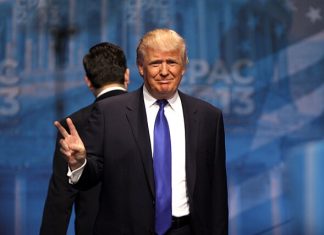It’s time for Georgia’s allies to show that they are committed to its pro-European future.
Western support for democracy and sustainability in Georgia has always been extremely important. These days, however, such support has, practically speaking, became decisive.
A whole chain of relatively recent actions by Georgian Dream, the ruling party, is the primary cause for the nation facing risks of increased magnitude. Those risks are versatile, starting with the reputational image of the country and ending with the inviolability of its societal fabrics.
What do Western policy makers have to bear in mind when it comes to doubling down on Georgia’s democratic resilience and institutional capacity building? How our partners in the West are to react to the ongoing policy line of ‘disconnect’ from that very Western order that this country has been pursuing for the last decades?
The first is keeping in line with the so-called ‘name and shame’ approach that is about giving a timely and due assessment in relation to the backsliding of the democratic order in Georgia and pointing that out to the perpetrators—with no hesitation and ambiguity in wording.
This is about sending a powerful message of solidarity to pro-democracy forces in the country and such support is of paramount significance through these very uneasy times.
The next steps are of a political character and relate to creating an explicit and unambiguous input towards the country immediately the democratic order and rule of law are restored. The meaningful bulk of this exercise, in this respect, primarily falls on the United States and the European Union.
A Georgian Marshall Plan
Two major instruments are the MEGOBARI Act and the Georgian People’s Act which have to progress through the US Congress and become effective without any further delay. Alongside these actions, the ‘name and shame’ policy must unfold broadly and unreservedly.
Several other measures could also be placed on the agenda, such as a Georgian Marshall Plan, which would be a strong message not just to the Georgian people but beyond.
Such a plan should clearly focus on impactful aid to spur the economy in the country and boost its investment profile.
Among other variable effects of the Plan should be a clear demonstration by the United States of its dedication to winning the battle of narratives and countering malign hybrid warfare by adversaries.
As I have already written, standing with Georgian democratic resilience and sovereignty has to be perceived in the overall optics of the Western-led soft power order in Georgia and the wider region.
The EU’s role
When it comes to the EU, support for Georgia, as an EU candidate, should be beefed up, with meaningful and result-driven European content. The nine conditions for opening up EU accession talks shall remain as the linchpin of EU-Georgia integration—currently formally on hold.
Besides the EU integration roadmap, other actions helping Georgia’s pro-democracy strata of society have never been as critical as they are today.
It is important to note that the grass roots support of Europe serves as a stronghold against the country wavering from its EU integration path, and supports institutional capacity-building, rule based development, and competitiveness.
We also have to mention that the challenges faced by the European Union are quite complicated.
By keeping firmly within its standards and principles, is has to deal with the existing Georgian quagmire as delicately as possible. This very candid appeal for caution leads to the frequently cited issue of keeping or reversing the EU visa-free entry regime for Georgian nationals.
My view is that keeping the current regime intact is in the best interests of the EU mid and long-term. Understandably, it serves furthering the pro-European sentiments of Georgians too.
There are various challenges both Georgians and the West face. Significant is that we, at our end, and our partners, must prove again that decades of investing in our partnership and cooperation were not in vain.
We must also reinvigorate our mutual faith in a shared future—this moment presents a challenging litmus test to the actors involved. And the test has to be passed.

















